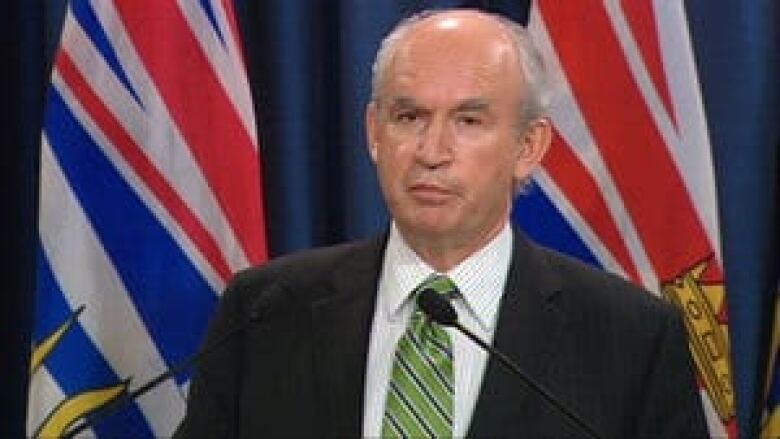No new cash for municipalities, B.C. government warns

Hundreds of municipal politicians that might be hoping to convince the B.C. government to help pay for local sewer upgrades, fill potholes or dig new gardens are being warned to lower their expectations
Up to 1,500 delegates have registered to attend the Union of B.C. Municipalities Convention in Victoria starting Monday.
Premier Christy Clark is slated to address the convention on Friday, after Opposition New Democrat Leader Adrian Dix speaks to delegates on Thursday.
The conventions have historically served as occasions for previous Liberal governments to make big financial announcements --removing the tolls on the Coquihalla Highway,introducing smart metersandelectrifying northern B.C.
'We don't have a lot of money at this point,' Bill Bennett, the minister of community, sport and cultural development.
But times have changed and saving money, not spending it, is the order of the day, says Bill Bennett, the province's newminister of community, sport and cultural development.
"We don't have a lot of money at this point," says Bennett, who was appointed to the ministryin a cabinet shuffle earlier this month."I won't be saying, 'You're wasting your time, there's no money."'
"What I'll be saying is, 'We want to understand what your needs are. We want to understand what your challenges are.' Then we'll try to help people solve their problem."
More than 200 resolutions are up for debate at the UBCM convention, including decriminalizing marijuana, banning shark fins and cleaning up tsunami debris, but Bennett said the hard issues revolve around funding infrastructure projects.
"They will quite understandably argue that they need more money for the roads and the sewers and the water and the transit. We will say, 'Yes, we know you need that."'
"But, I will also be raising the issue of local government generally trying to keep their expenses down the way the province does," Bennett said. "It will be a good, honest discussion with local government."
Bennett said cities such as Prince George and Penticton have been doing a solid job of managing their expenses. But others, which he did not name, have been giving their workers pay raises and spending a considerable amount of money.
Municipal spending up
The B.C. Business Council released a study in May that examined municipal spending in Metro Vancouver.I found that municipal operating spending in Metro Vancouver increased 80 per cent from 2000 to 2010.
The study concluded that the 21 Metro Vancouver municipalities spent $3.1 billion on operations in 2010, up from $1.7 billion in 2000. B.C. government spending increased by 10 per cent over that same period.
"We'll be saying, 'You've got to find the best, low-cost alternative to whatever it is that you want to do,"'
Bennett said. "I have some real good honest to goodness empathy for the challenges they face, but we have to include in that discussion, however, a discussion about their rapidly escalating expenditures."
He said the province is currently in talks with the federal government on a new infrastructure funding model. That deal may not be complete until 2014, Bennett said.
Shachi Kurl, spokeswoman for the Canadian Federation of Independent Business B.C., said the UBCM convention is an opportunity for business, labour and social groups to meet formally and informally with local and provincial politicians.
She said tax issues and infrastructure developments are topics of huge concern to members of the small business community who, like others, want to be included in discussions and possible decisions that impact their well-being.
"It's important for organizations like ours and other organizations that represent different sections and segments of the population and small businesses to ensure that other points of view are being heard, raised and discussed," she said.












_(720p).jpg)


 OFFICIAL HD MUSIC VIDEO.jpg)
.jpg)



























































































